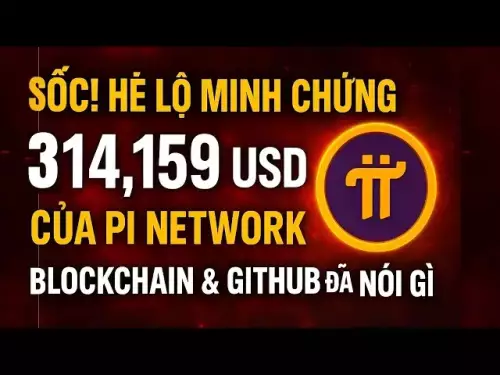 |
|
 |
|
 |
|
 |
|
 |
|
 |
|
 |
|
 |
|
 |
|
 |
|
 |
|
 |
|
 |
|
 |
|
 |
|
Cryptocurrency News Articles
Adam Back, Bitcoin, and P2P Nodes: Defending Decentralization in the Age of JPEG Spam
Sep 25, 2025 at 11:09 pm
Adam Back champions Bitcoin's decentralization amid rising concerns over P2P nodes and network efficiency. Dive into the debates shaping Bitcoin's future.

The dynamics surrounding Adam Back, Bitcoin, and its peer-to-peer (P2P) node network are constantly evolving. This blog post synthesizes recent discussions, highlighting key viewpoints and potential future trends.
Adam Back on the Defense of Bitcoin's Decentralization
Adam Back, CEO of Blockstream, has been vocal about the importance of maintaining Bitcoin's decentralized P2P node network. He argues that undermining this decentralization poses a significant threat to Bitcoin's core principles of sovereignty and censorship resistance. According to Back, Bitcoin's resilience over the past 16 years is rooted in its decentralized architecture.
The Slippery Slope of Centralization
Back warns against a “slippery slope” towards centralization, sparked by criticisms of Bitcoin Core. He emphasizes that the Bitcoin ecosystem thrives on the contributions of diverse individuals and organizations worldwide. Any changes that compromise this balance could jeopardize the blockchain's security and stability. He firmly believes that technical decisions should prioritize safety over fleeting public opinions or political pressures.
JPEG Spam and Network Efficiency
Another pressing issue highlighted by Adam Back is the surge in JPEG files inscribed on the Bitcoin blockchain. This phenomenon raises concerns about network efficiency and utility. Between May and September 2025, JPEG inscriptions grew by 20%, costing approximately $700 million in transaction fees. Back explains that while miners provide computing power, the real control lies with “economic nodes” run by users.
Combating Wasteful Activity
Back stresses the importance of economically sound solutions to reduce wasteful JPEG spam without undermining Bitcoin's core value. While recognizing JPEG transactions as economic activity, he points out their inefficiency, increasing transaction costs and hindering usability for new users. He suggests exploring alternative storage solutions like Imgur or IPFS.
Possible Solutions and Their Pitfalls
Adam Back proposes various strategies to curb JPEG spam, including incentivizing miners to avoid processing them and adjusting transaction fees to make spam unprofitable. However, he cautions against centralization risks and emphasizes the need for careful implementation.
Bitcoin via iMessage: A Step Towards Mainstream Adoption
In a separate development, Macadamia Wallet launched an update enabling Bitcoin transfers directly through Apple’s iMessage. This innovation simplifies cryptocurrency transactions, making them as easy as sending a text message. By integrating the Lightning Network and the Cashu protocol, Macadamia offers near-instant payments with enhanced privacy and usability.
Why This Matters
This integration has the potential to expose Bitcoin to a massive audience, leveraging Apple’s extensive user base. It addresses the long-standing criticism that Bitcoin is too complicated for average users, potentially accelerating mainstream adoption.
My Two Satoshis
Adam Back's insights are always valuable, especially when it comes to defending Bitcoin's core tenets. While JPEG spam might seem like a trivial issue, it highlights the ongoing battle to balance network efficiency with censorship resistance. The Macadamia Wallet update, on the other hand, shows how innovation can make Bitcoin more accessible to the masses. It's like Bitcoin is finally learning to speak fluent human, one iMessage at a time.
So, what’s the takeaway? Bitcoin is like that quirky friend who's constantly evolving, sometimes in weird ways (JPEG inscriptions, anyone?), but always staying true to its core values. Keep stacking those sats, folks!
Disclaimer:info@kdj.com
The information provided is not trading advice. kdj.com does not assume any responsibility for any investments made based on the information provided in this article. Cryptocurrencies are highly volatile and it is highly recommended that you invest with caution after thorough research!
If you believe that the content used on this website infringes your copyright, please contact us immediately (info@kdj.com) and we will delete it promptly.
























































